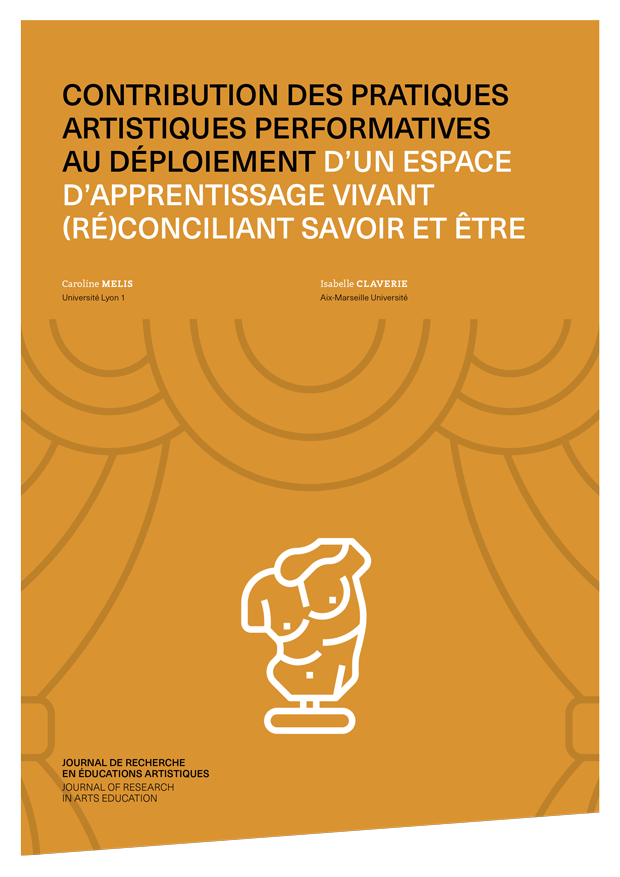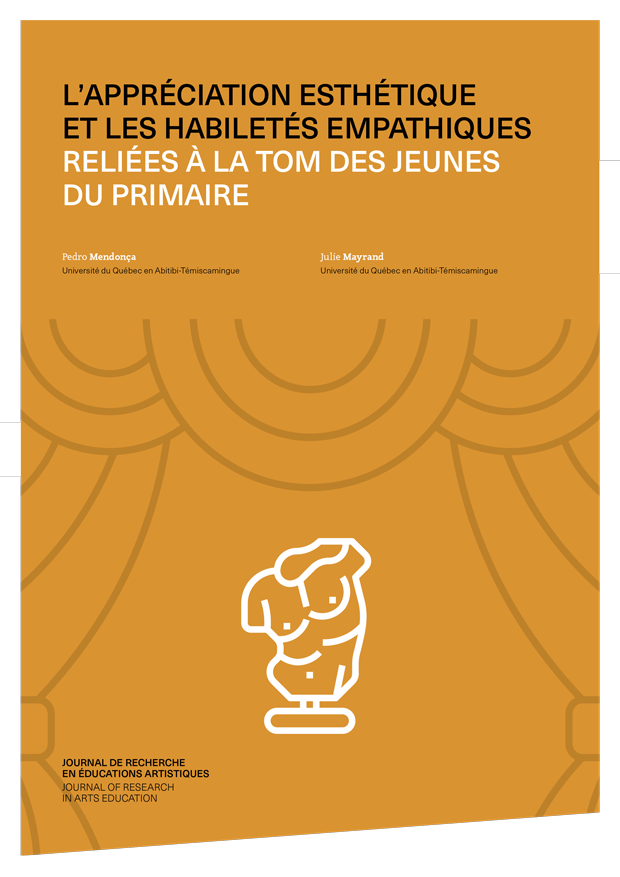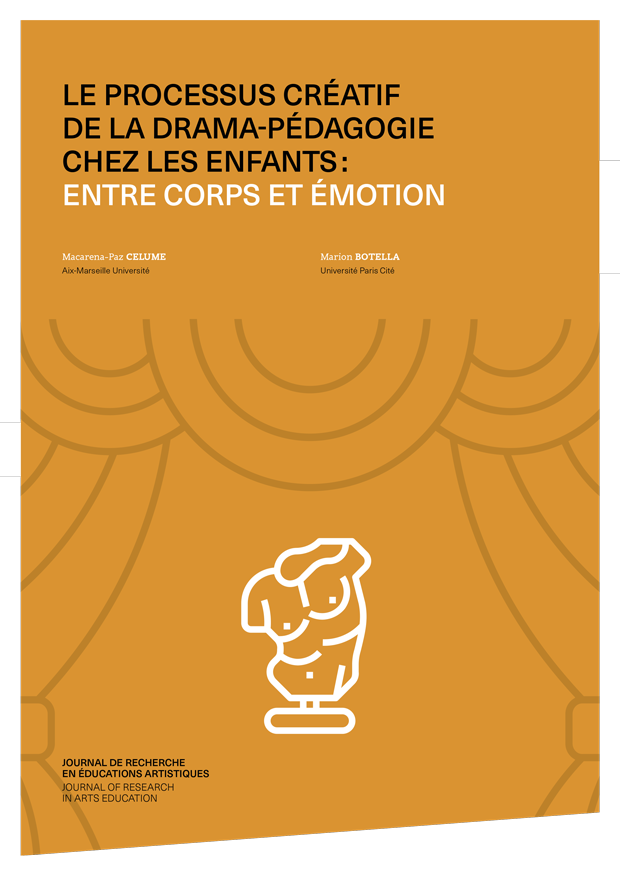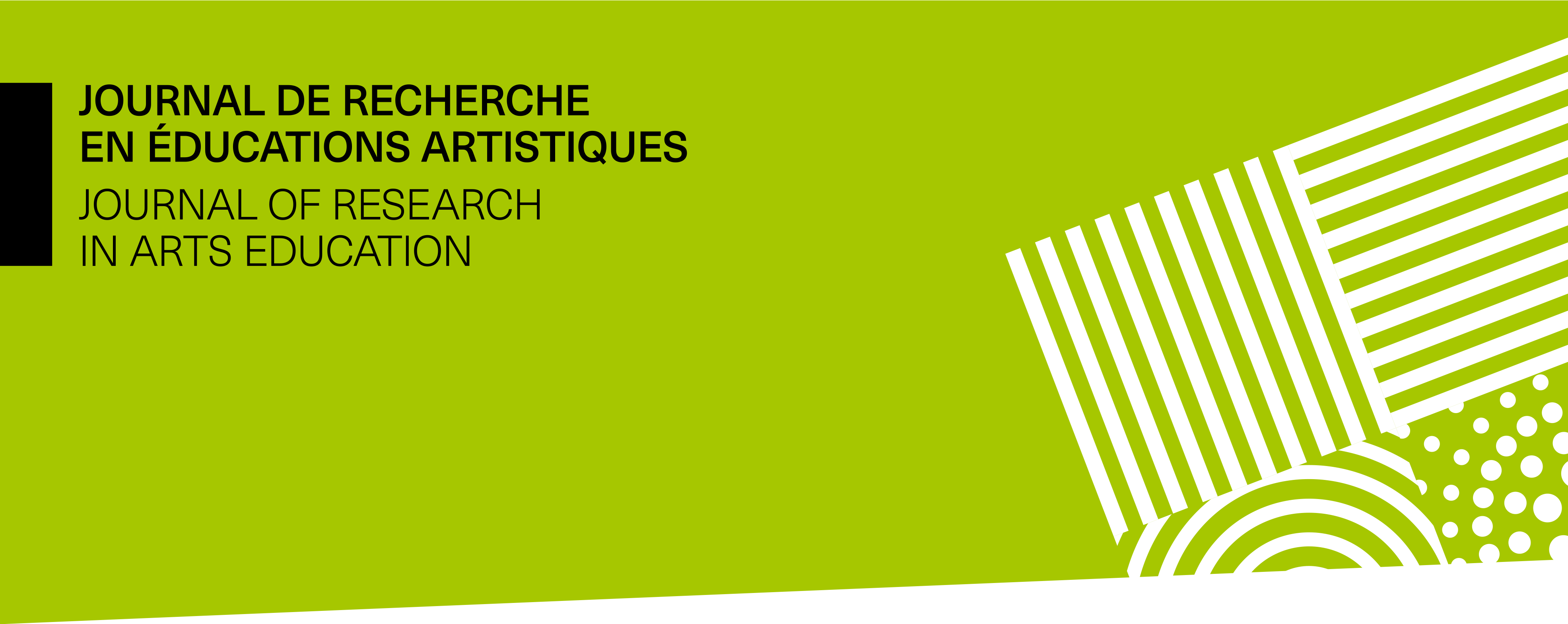
About the Journal
Journal of Research in Arts Education (JRAE) – Journal de recherche en éducations artistiques (JREA) is an international scientific journal in the field of education which appears once or twice a year. It publishes articles in French, German and English. It is supported by the Centre de compétences romand de didactique disciplinaire (2Cr2D), which brings together the Hautes écoles pédagogiques romandes and the IUFE of the University of Geneva, in partnership with Aix-Marseille University. Drawing on an international community of researchers, the JREA/JRAE goes beyond linguistic borders and aims at a broad spectrum of influence.
JREA/JRAE publishes original articles in French, German and English, focusing on teaching and/or learning in the field of arts education (music; plastic arts/visual arts; applied arts/design; dance; theatre/performance; film; mime, etc.). To guarantee its quality, each published article is first evaluated in a double-blind manner by a scientific review community (peer review) independent of the Editorial Board.
Current Issue
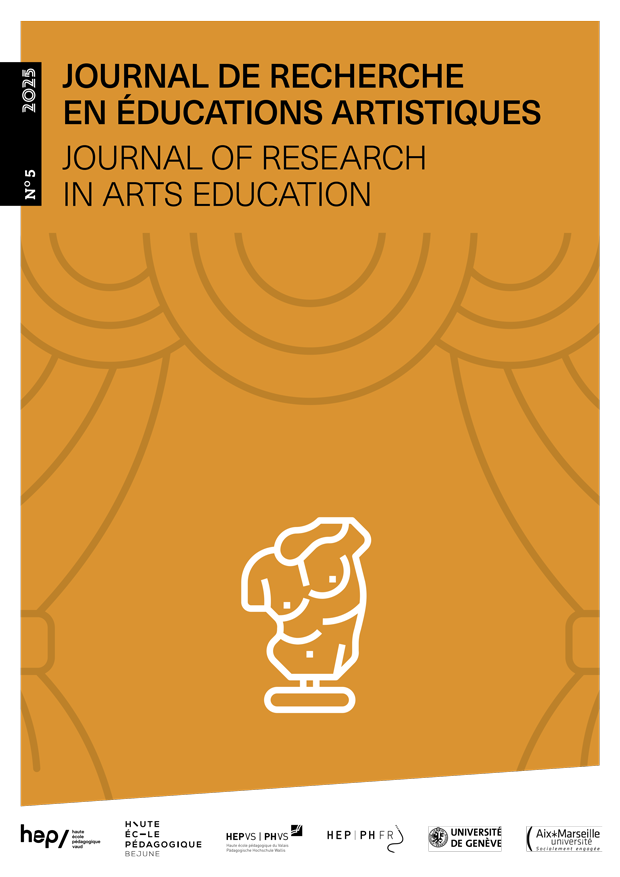
This 5e issue of the Journal of Research in Arts Education / Journal de recherche en éducations artistiques is part of an interdisciplinary and transdisciplinary dynamic that needs to be documented, invented or reinvented. The aim here is to explore the place of sensibility in education as a foundation for cross-disciplinary skills linked to the teaching and learning process. This link is constitutive of the 'between' (Jullien, 2011) from which can emerge a 'relational aesthetic' (Bourriaud, 1998) between the teacher and the pupil, the participants and the researcher, the creator and the environment, the different arts, the arts and other disciplines, between the intelligible and the sensible, etc. At the crossroads of the visual arts and theatre, the fine arts and the performing arts, the complex relationship between self, other(s) and environment(s) shapes methodological approaches in teaching and research, just as it plays a part in cognitive processes. What sensitive educational models are being proposed around the world ? In what way do these new performative models invite us to reconsider the place given to scholarly knowledge, expert knowledge, academic models, social reference practices or socially topical issues in the various education systems ?
Full Issue
Edito
Research articles
ISSN 2813-5253
